
The COVID-19 pandemic has wrought enormous personal, economic, and social damage. It has upended countless lives, and exacerbated the many disruptions afoot, laying bare the unviability of many business models. Beyond that, it has provided a new set of acute shocks to seemingly sturdy businesses and principles that have guided our thinking for decades. Wrapping our minds around what is happening is enormously difficult. Having resulted in 14.6 million known infections and 608,000 known deaths as of July 20, the new coronavirus is unpredictable and lethal, and its like hasn’t been seen in more than a century. Its effects are paradoxical. It has caused a supply shock and a demand shock.
It is causing a recession of indeterminate length and severity — even as some countries are crawling their way back to recovery. It is inspiring heroic feats of public-spiritedness and charity among millions, while also providing an opportunity for fraudsters to peddle false cures and prey on the vulnerable. It is stoking competition among countries, and between regions within countries, to secure supplies, while also serving as an occasion for greater national solidarity and regional cooperation. The pandemic is primarily a public health problem, but one with immense immediate implications for business, and for economic, fiscal, and monetary policy. The health threats could disappear within a matter of months — or they could persist for years. This virus is both accelerating powerful existing trends (such as automation and inequality) and slamming the brakes on trends that had, until very recently, possessed tremendous momentum (such as globalization).
Denne historien er fra Autumn 2020-utgaven av strategy+business.
Start din 7-dagers gratis prøveperiode på Magzter GOLD for å få tilgang til tusenvis av utvalgte premiumhistorier og 9000+ magasiner og aviser.
Allerede abonnent ? Logg på
Denne historien er fra Autumn 2020-utgaven av strategy+business.
Start din 7-dagers gratis prøveperiode på Magzter GOLD for å få tilgang til tusenvis av utvalgte premiumhistorier og 9000+ magasiner og aviser.
Allerede abonnent? Logg på

Transforming information into insight
Focus on six organizational elements to build a world-class data and insights capability.

THE URGENT NEED FOR SOPHISTICATED LEADERSHIP
The pandemic has highlighted a series of paradoxes inherent to the work of leaders. What comes next will depend on how well leaders face up to them.
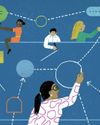
The road to successful change is lined with trade-offs
Rather than trying to convince people your change initiative is the right one, invite them to talk openly about what it might take to implement it: the good, the bad, and the frustrating.
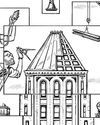
Sustaining productivity virtually
Maintaining productivity levels among remote employees is an enduring challenge. Here are five ways to help businesses and employees thrive while people work at home.
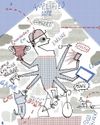
FORWARD TO normal
Entertainment and media companies are building business models that are resilient to the enduring changes in consumer behavior ushered in by COVID-19.

How leaders can promote racial justice in the workplace
Embrace four principles to turn today’s diversity, equity, and inclusion initiatives into sustained progress.

CREATING THE OFFICE OF THE FUTURE
In a remodeled world, it is vital for companies to reinvent ways of working.
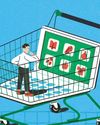
Consumer companies must take leaps, not steps
As shoppers show how quickly they can adapt to external shocks, retailers will need to radically reconfigure their business models.
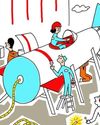
Businesses can fast-track innovation to help during a crisis
“Unrealistic” timelines can actually work. Here’s how.
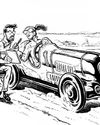
Agility and experience management work better together
Many companies achieve early wins with separate transformational efforts, then stall. But if combined and enhanced using “return on experience,” or ROX, measures, these two programs can unlock each other’s potential.